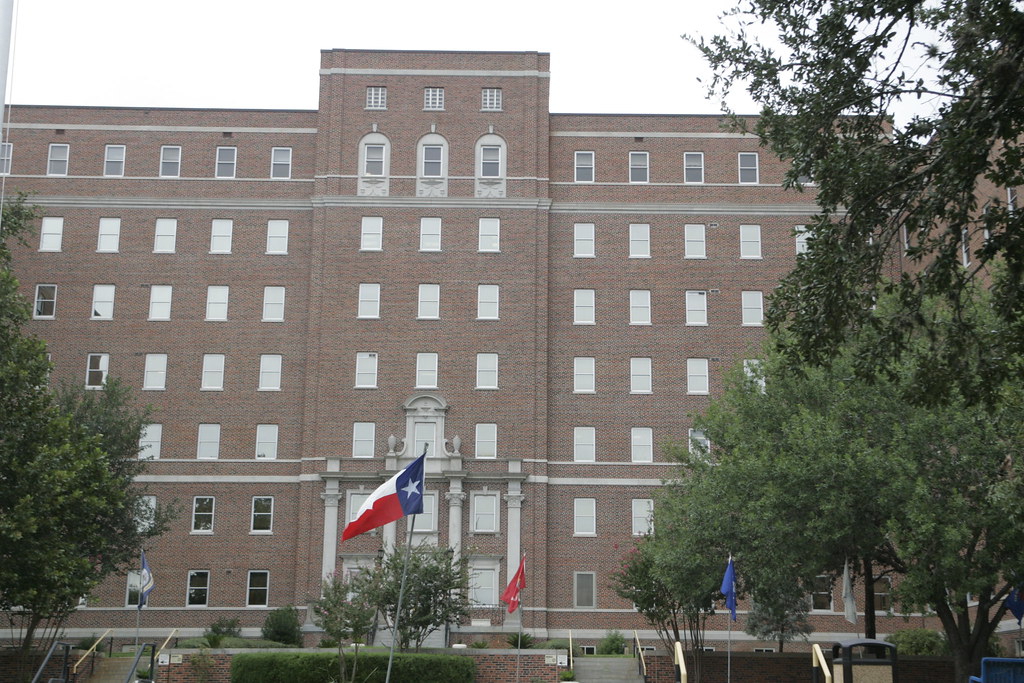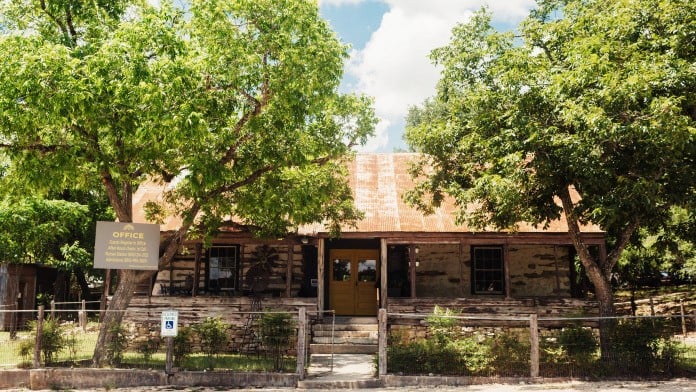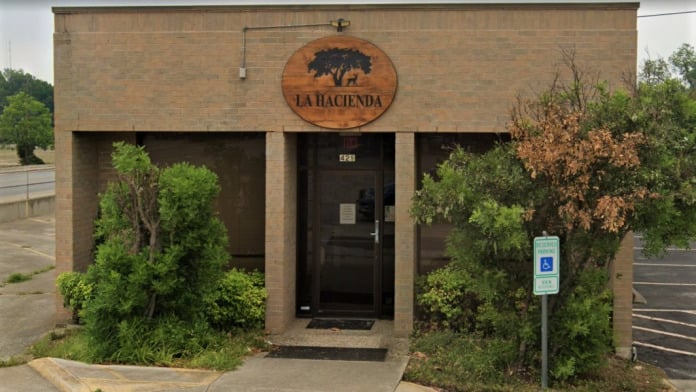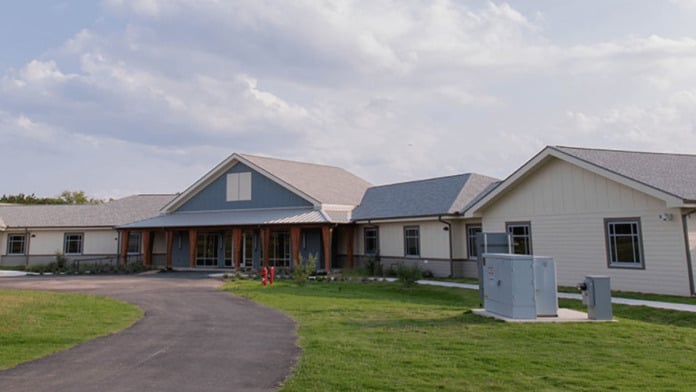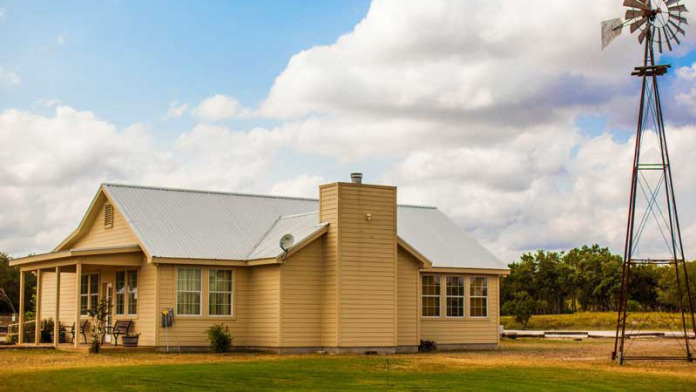I took my daughter here for some severe trauma issues that she was finally ready to deal with. The first week I talked to her I could tell somethings weren't right. I simply had hope, but everything in my gut said otherwise. My daughter had to leave to a suicide unit, the ...
About The Fullbrook Center
The Fullbrook Center is an addiction treatment center for women that’s located in the city of Fredericksburg, Texas. They offer medical detox and residential treatment programs that last between 30 and 90 days, depending on your needs and progress. They have space for 29 women at a time.
Their facility is located on 10 sprawling acres of Texan countryside, ensuring your journey happens surrounded by tranquility and comfort. While staying at Fullbrook, you’ll have access to a pool, padel court, walkable labyrinth, homey bedrooms, and tons of gathering spaces designed to build connection between residents. They also have horses and goats on the premises, and you can watch their adorable antics in between treatment sessions.
Their treatment approach combines the 12-step method with evidence based methods like therapy, mindfulness skills, and attachment theory. Attachment theory examines the way your relationships and attachment style interact with substance use disorder. While looking at the history of your relationship dynamics, you can sometimes gain insight into the roots of addiction.
The treatment team also helps you work through past and current trauma, because substance use and trauma are often strongly related. They’ll help you identify unhealed wounds that have created unhealthy patterns of behavior, and then work with you to heal these wounds and rebuild your life.
The Fullbrook Center has a philosophy based on strength, connection, and freedom. Their aim is to help women find the strength needed to be vulnerable and heal, facilitate meaningful connection amongst women facing similar struggles, and give women freedom from addiction and trauma. Something special about their dynamic is their commitment to changing the narrative that women don’t (or can’t) get along with each other. They help you build encouraging and loving bonds with the other women in treatment, creating a powerful support system that you can carry with you for the rest of your life.
Facility Overview
Latest Reviews
Our staff shows up the way they do because they genuinely care about the people who come through our doors, and your mom’s progress is exactly why we do this work. We’re grateful you allowed us to be part of her healing, and we’re wishing your family nothing but steady, continued peace moving forward.
Rehab Score
Gallery
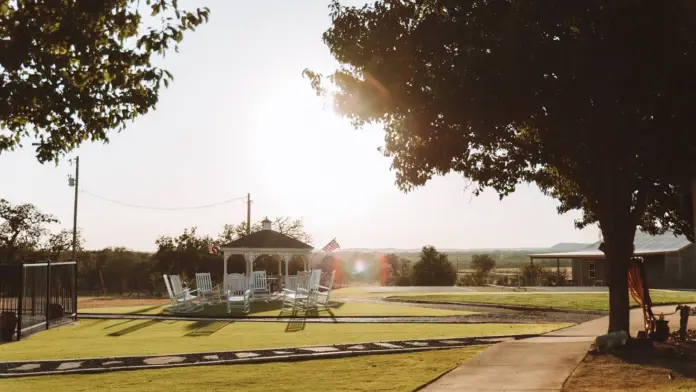


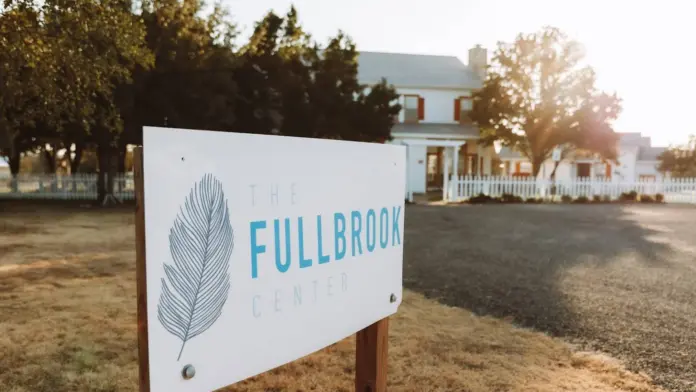




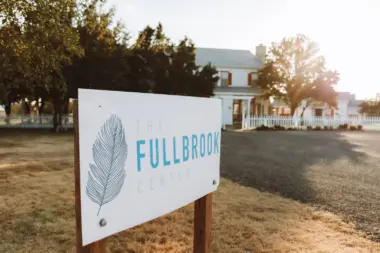

Other Forms of Payment
Private insurance refers to any kind of healthcare coverage that isn't from the state or federal government. This includes individual and family plans offered by an employer or purchased from the Insurance Marketplace. Every plan will have different requirements and out of pocket costs so be sure to get the full details before you start treatment.
Self-pay involves paying for treatment out of your own pocket. You can use savings or credit, get a personal loan, or receive help from family and friends to fund your treatment. If you don't have insurance or your insurance plan doesn't cover a specific program, self-pay can help ensure you still get the care you need.
Addiction Treatments
Levels of Care
After completing some form of inpatient care, many clients transition or step down to an outpatient rehab, while some choose to transition from detox directly into outpatient care. High-intensity outpatient programming, including partial hospitalization (PHP) and intensive outpatient (IOP) is widely available for clients in early recovery, those leaving detox, and those at an elevated relapse risk. Clients in outpatient care generally engage in robust addiction counseling and recovery education, and some also receive medication assisted treatment (MAT).
Residential treatment programs are those that offer housing and meals in addition to substance abuse treatment. Rehab facilities that offer residential treatment allow patients to focus solely on recovery, in an environment totally separate from their lives. Some rehab centers specialize in short-term residential treatment (a few days to a week or two), while others solely provide treatment on a long-term basis (several weeks to months). Some offer both, and tailor treatment to the patient's individual requirements.
Intensive Outpatient Programs (IOP) are for those who want or need a very structured treatment program but who also wish to live at home and continue with certain responsibilities (such as work or school). IOP substance abuse treatment programs vary in duration and intensity, and certain outpatient rehab centers will offer individualized treatment programs.
Rehab aftercare programs are based on a model of continuing care and the premise that recovery is a life-long process requiring ongoing client support. Many rehab aftercare services include outpatient care, but clients often continue to receive support after being discharged from formal treatment. Case managers and care teams typically collaborate with clients to design their long-term care plan, which may include peer coaching, career counseling, and 12 step program induction, among other services.
The 12-step program is a mainstay in the addiction recovery community. Its longevity and commitment to accountability has proven to be a invaluable component in the continued sobriety of millions across the world. Their staff will evaluate the patient life struggling with addiction, in order to determine if the 12-step program is right for them.
Treatments
The goal of treatment for alcoholism is abstinence. Those with poor social support, poor motivation, or psychiatric disorders tend to relapse within a few years of treatment. For these people, success is measured by longer periods of abstinence, reduced use of alcohol, better health, and improved social functioning. Recovery and Maintenance are usually based on 12 step programs and AA meetings.
During rehab in Texas, you'll deal with underlying issues that contribute to addiction. By addressing these challenges and learning healthy ways to cope with them, you'll develop strategies that help you live a drug-free lifestyle.
Many of those suffering from addiction also suffer from mental or emotional illnesses like schizophrenia, bipolar disorder, depression, or anxiety disorders. Rehab and other substance abuse facilities treating those with a dual diagnosis or co-occurring disorder administer psychiatric treatment to address the person's mental health issue in addition to drug and alcohol rehabilitation.
A combined mental health and substance abuse rehab has the staff and resources available to handle individuals with both mental health and substance abuse issues. It can be challenging to determine where a specific symptom stems from (a mental health issue or an issue related to substance abuse), so mental health and substance abuse professionals are helpful in detangling symptoms and keeping treatment on track.
Opioid rehabs specialize in supporting those recovering from opioid addiction. They treat those suffering from addiction to illegal opioids like heroin, as well as prescription drugs like oxycodone. These centers typically combine both physical as well as mental and emotional support to help stop addiction. Physical support often includes medical detox and subsequent medical support (including medication), and mental support includes in-depth therapy to address the underlying causes of addiction.
Programs
Adult rehab programs include therapies tailored to each client's specific needs, goals, and recovery progress. They are tailored to the specific challenges adult clients may face, including family and work pressures and commitments. From inpatient and residential treatment to various levels of outpatient services, there are many options available. Some facilities also help adults work through co-occurring conditions, like anxiety, that can accompany addiction.
Young adulthood can be an exciting, yet difficult, time of transition. Individuals in their late teens to mid-20s face unique stressors related to school, jobs, families, and social circles, which can lead to a rise in substance use. Rehab centers with dedicated young adult programs will include activities and amenities that cater to this age group, with an emphasis on specialized counseling, peer socialization, and ongoing aftercare.
Clinical Services
Equine therapy, aka equine-assisted therapy (EAT), is a form of experiential therapy that involves interactions and activities with horses. It does not necessarily involve riding horses, but all activities related to horses, such as feeding, grooming, haltering and leading them. A mental health professional frequently oversees the activities (often in conjunction with a horse professional), and helps patients process their thoughts, feelings, and behavior patterns during and/or after the interaction.
Peer support is an important aspect of group therapy sessions for drug and alcohol addiction. As you and your peers share stories and encourage each other, it fosters a sense of community and belonging that helps you process your feelings and reduces the sense of isolation that is associated with addiction.
In individual therapy, a patient meets one-on-one with a trained psychologist or counselor. Therapy is a pivotal part of effective substance abuse treatment, as it often covers root causes of addiction, including challenges faced by the patient in their social, family, and work/school life.
EMDR is a therapeutic modality originally developed to help process trauma. In an EMDR session, a patient is prompted to undergo eye movements that mimic those of REM sleep. This is accomplished by watching a therapist's finger move back and forth across, or following a bar of light. The goal is repetitive sets of eye movements that help the brain reprocess memory, which can significantly reduce the intensity of remembered traumatic incidents. Associated memories can heal simultaneously, leaving patients significantly calmer, more stable, and more emotionally relaxed.
Awakenings Recovery has plans designed for the whole family at all of their facilities. These multi-day seminars help every member of the family understand the disease of addiction. Substance abuse is a sickness that reflects itself throughout the whole family. The addiction specialists will work with the patient's family to achieve forgiveness and the foundation for lasting sobriety.
The toll of addiction not only ravage the mind, but destroy the body. Many enter treatment with symptoms of malnourishment, or physical exhaustion and significant obesity. After the detox process (if prescribed), they can focus on restoring physical health through balanced meals and scheduled physical fitness. Maintaining a healthy physique can be a critical part to a lasting recovery. Returning to healthy patterns of sleep, emotion, and health allow the mind to fight addiction fully.
Creativity is inherently healing, and can help those in recovery express thoughts or feelings they might not otherwise be able to. Creative arts therapy can include music, poetry/writing, painting, sculpting, dance, theater, sandplay, and more. Unlike traditional art, the final product matters far less than the experience of creation and expression itself.
When used as recommended, nicotine replacement therapy in Texas provides enough nicotine to help you avoid severe cravings and withdrawal symptoms after quitting smoking. This increases comfort so you're less likely to relapse into your smoking habit.
Amenities
-
Yoga Studio
-
Residential Setting
-
Private Rooms
Staff & Accreditations
Staff

Jessica Slay, MS, LPC-S, EMDR
CEO, Founder

Raul Cartagena
COO

Josh Slay
Founder

Natalie Johnson, LMFT, LCDC,
Clinical Director

Ciara Black
Case Manager

Chasity Price, LVN
Director of Nursing
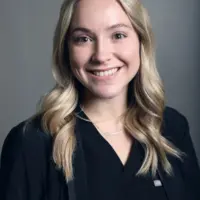
Britanny Garza Castaneda
Medical Assistant

Lauren Grace
Director of Recovery Services
Accreditations

The Commission on Accreditation of Rehabilitation Facilities (CARF) is a non-profit organization that specifically accredits rehab organizations. Founded in 1966, CARF's, mission is to help service providers like rehab facilities maintain high standards of care.
CARF Accreditation: Yes
Accreditation Number: 272483

State Licenses are permits issued by government agencies that allow rehab organizations to conduct business legally within a certain geographical area. Typically, the kind of program a rehab facility offers, along with its physical location, determines which licenses are required to operate legally.
State License: Texas
License Number: 3902

The National Association of Addiction Treatment Providers (NAATP) is a professional association that represents organizations in the field of addiction services. Founded in 1978, NAATP's mission is to advance addiction services and ensure that high-quality addiction treatment is available and accessible.
NAATP Member: Yes
Member ID: 4088
Contact Information
184 Fullbrook Ln
Fredericksburg, TX 78624
